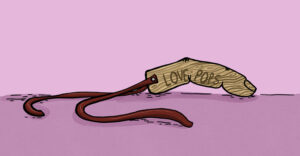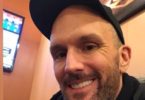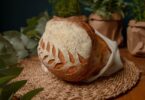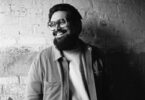My left pinky was first. During the icebreaker at my college dorm’s first floor meeting, when I was asked to give three interesting facts about myself, I lifted my pinky-less hand.
The first fact was: “I grew up on a farm about four hours away.”
The second fact was: “I lost my left pinky finger after I moved in.”
And the third fact was: “There’s nothing else about me that’s interesting.”
People nodded. The RA smiled and thanked me. Then, the girl across from me with the pigtails spoke.
◊ ◊ ◊
When mom picked me up that December for the winter break, I came down with a backpack full of clothes to meet her, the dark grey family car stark in the snowscape, and I hugged her so long and so hard until she pushed me away and pulled off my left glove. Then she put it back on.
We didn’t talk about it. When I got home and hugged dad for twice as long, he didn’t notice. Not until I was handing boxes of Christmas decorations up to him from the crawlspace, when I was lifting the boxes heavily through my right hand.
He held my left hand and looked at it a while.
◊ ◊ ◊
For my birthday in March, mom drove down from the farm to buy me dinner. Dad was busy weening the calves with my little brother. My older brother was supposed to meet us for dinner but said he was too busy an hour before.
Over our bowls of Mongolian stir fry mom handed me a small gift wrapped in blue. Inside was a little finger dad had carved for me out of tamarack, with a strap of leather nailed carefully into the bottom, which I could use to secure it onto my hand.
I put it on. The tamarack pinky was the perfect size and shape. Mom smiled at me over our bowls of stir fry. “He must have used his own finger to scale it,” she said.
On the inside edge of it, where I could always see it, he’d carved: LOVE, POPS
◊ ◊ ◊
When summer came and I moved back to the farm, I didn’t lose anything. When I went back to school that fall for my second year, to the same dorms, but a brand new floor full of brand new people, I lost my right ear.
My fun fact that year was: “I decided to switch from Fine Arts, and only after did I lose this ear.” The RA laughed and the rest pretended. I sat back down. When the guy to my right talked about himself, I couldn’t understand a word.
On Christmas morning, mom gave me the hat with tall elf ears sewn into the sides to wear while we opened gifts. I pulled it down onto my head and stared at myself in the mirror for a long time.
◊ ◊ ◊
When summer came and I moved back to the farm, I didn’t lose anything. I worked the fields, moving cattle for daily grazing, cutting hay for my little brother to rake into swaths that dad would bale. At the end of the summer, I got in the car with mom at six in the morning and we pulled away. I tilted my chair back and took a nap. I was excited to live in a fancier, quieter dorm that year, sharing a suite with a friend.
When I woke up, we were halfway there, and I didn’t have my right foot. My shoe sat empty on the floor.
◊ ◊ ◊
My suite-mate and I didn’t bother to go to the floor meeting that year. But if we had, I had my script ready:
“What I wouldn’t give for two left feet.”
My gift that Christmas was one heavy, woolen sock. For my birthday, a very beautiful shoe.
◊ ◊ ◊
When summer came yet again and I moved back to the farm, I didn’t lose anything. Dad said: “Thank god every tractor clutches on the left,” but he didn’t let me drive on the highways between the fields because I couldn’t use the brakes.
At the end of the summer, my older brother moved back to the farm, and my little brother went off to college a whole flight away. I wondered if I would ever see him again. That fall, I moved back to the same dorm room with the same suite-mate.
But while I was hurriedly crutching down the hall, I slipped and hit my face on a doorknob and broke a tooth.
◊ ◊ ◊
That Christmas, my little brother came back intact. I was shocked. My older brother, on the other hand—after being on the farm a little over four months—had gone completely bald. By the time he moved back to a friend’s couch in the city, a few months later, his finger and toenails had all fallen off.
When summer came around, I didn’t go back to the farm. I moved into a new apartment with my older brother. I had a summer job as a research assistant. When my brother came to pick up my stuff from the dorms, his hair was growing out again. He had eyelashes. His fingernails were halfway to the tips.
When I crutched into the apartment for the first time, I went into the kitchen to get a beer and tried to open the fridge but couldn’t reach the handle. I had to crutch a step forward before I could.
The fridge’s door had been too far away the first time.
Because I had lost an eye.
◊ ◊ ◊
I worked and when school kicked off again I schooled. I was finally living off campus in the apartment with my brother. I had one extra semester to finish my degree. I stretched that semester across a whole year, and because I didn’t want to try to start life after, I looked into graduate schools. I sat at my computer late into the night, staring at a blank page, tapping my tamarack pinky against the control key. Over and over until something came.
I applied to schools in far flung places.
◊ ◊ ◊
By the time the summer came around again, and I returned to my research assistant job, I was set to go to graduate school almost 2000 miles away, and in New York. When I responded to the acceptance, I had trouble breathing. It stayed trouble for a week and I went to the ER and they said that I only had one lung, didn’t I know?
I didn’t know how to answer that question. Because I think that I did know. I think I knew the second before I clicked the mouse button to confirm the acceptance of admission.
◊ ◊ ◊
I packed all I could fit into one check bag and one carry-on. Some of my friends came over to help get my things out of the apartment and into mom’s car. We were going to donate the decent furniture I had left to the thrift store before dropping me off at the airport, and she was going to take the extra five boxes of books and my desktop computer back to the farm to be stored, for now. I stood at the bottom of the stairs, with my crutch in my pit, breathing, watching my friends carry my bedroom empty. I couldn’t exert myself enough to help. I tapped my wooden pinky on the wall.
I got off the plane at LaGuardia and was given a ride through the airport on a cart. Someone who worked for the airline had probably requested one because they had a passenger with one foot, one eye, one ear, and who had informed the flight staff that if the oxygen got low the passenger would possibly pass out due to having only a single lung. I sat on the back of the cart and felt away from the world. As every exhausted person stared at me on the cart as I zoomed past. As every exhausted person walked through the airport with their exhausted friends. As the driver whistled and beeped his tiny horn. Not even the driver talking to me.
I got in a taxi. I got on a train. I got picked up by another grad student, who made sure to grab my bags and talk very deliberately towards the left side of my head, and tried not to stare at my empty eye. The less he stared, the more of an outsider I felt. The further I felt from the way people were seeing me, and how I saw myself. Before my first class, the Assistant Director of Student Life came over to find me in the dorm I was living in, and asked me how everything was, and if I needed anything, how I can let them know if I ever did. I added their phone number to my contacts as I stood quiet in front of them. Then I sent them a text so that they could save my number.
“Please leave me alone thank you.”
I had misplaced my tongue.
◊ ◊ ◊
Mom texted me photos of dad holding fish he caught in the river. Of dad cutting twine off hay bales. Of a bull moose standing in a foggy field whose fences he’d just broke through. Of their new dog with a dead skunk in her mouth.
◊ ◊ ◊
I was not the only graduate student in our program that was missing pieces of themselves. There was a girl who had no ribs who came from Arizona, and had applied to our program after she’d been studying the saxophone for the last fourteen years and had finally stopped getting better. There was also a man who had no right leg and who still lived in his childhood home with his mother.
I briefly dated the girl from Arizona. We had sex, but we eventually decided that we didn’t have much in common. One of the things we did was that we did not like the man without the leg. Not because he didn’t have a leg. Everyone was nice to him, to her, and to me because of all of these things they saw us lacking. She and I didn’t like him because he kept trying to use the implicit kindness of others to try and get laid. It sometimes almost worked.
◊ ◊ ◊
What I wrote was picked apart for its involvement in what parts of me were missing. With everything I wrote, someone would find a way to tie that in. People would hold doors open for me. People would offer to carry my book bag as I crutched my way into the main building. People would do everything for me if I’d only let them.
Once, I wrote a sonnet that was simply one line repeated 14 times:
When I imagine myself I don’t see who you think you see.
When I imagine myself I don’t see who you think you see.
When I imagine myself I don’t see who you think you see.
When I imagine myself I don’t see who you think you see.
When I imagine myself I don’t see who you think you see.
When I imagine myself I don’t see who you think you see.
When I imagine myself I don’t see who you think you see.
When I imagine myself I don’t see who you think you see.
When I imagine myself I don’t see who you think you see.
When I imagine myself I don’t see who you think you see.
When I imagine myself I don’t see who you think you see.
When I imagine myself I don’t see who you think you see.
When I imagine myself I don’t see who you think you see.
When I imagine myself I don’t see who you think you see.
During the workshop, nobody mentioned that the sonnet was lazy. Nobody said that the scansion was totally off, that it was neither pentameter nor iambic. They said it was brave, brutal, gorgeous. At the end of the workshop, our instructor took off her glasses, looked at me, hand on her heart, and said:
“It is just so heartbreaking how you’ve made your speaker be missing an eye inside.”
◊ ◊ ◊
The air was so cold on my lung when I landed for Christmas that year. I was exhausted from New York, from dealing with the majority of the students in my workshops who were unable to understand that I was just another person. That I was boring.
When I landed, another cart was waiting for me, but I ignored it. As I passed it, the cart followed after me, the driver beeping his tiny horn, saying that he was there to help me. I dragged my wheely carry-on bag. I crutched along. I rode the escalator to where mom was waiting for me, my brothers standing tall on either side of her. As I got to the bottom, I continued to drag my carry-on myself. They didn’t stop me, but as we were leaving an airport staffer came over and tried to apologize to me for my not understanding that the cart had been called to my gate specifically for me.
When we got to the car, my older brother drove, and my younger brother sat in the passenger seat. They were both whole. Mom sat in the back with me.
As we made our way home through the snowy afternoon, into the snowy evening, I stared down at my hands. I wanted to sleep, but I was afraid I was going to lose more of myself. Not at that moment, but later, because I knew that I had no choice but to keep moving. Because I had not yet found the place that could make me feel both visible and whole.
◊ ◊ ◊
When we made it home, after we each got our long hugs from dad, I took off my winter clothes and sat on the couch in the living room. They had finally bought an artificial tree, and it was already decorated. My brothers got beers. They had asked me if I wanted one, but as I tried to say yes, my tongue of course was still gone. I made a graceless noise to them, then looked down again, shaking my head, face flushing hot. Then, dad got up from his chair and left the room.
As my brothers sat down on the couch with me to watch the same old TV shows that were always on, dad came back with a big wrapped box. He brought it over and put it on my lap.
“I know it’s not Christmas yet, but I think this might help you enjoy it.”
I looked down at the box. I didn’t feel up to taking out my phone and typing up a protest. I tore through the Snoopy-themed paper and lifted the lid from the blank box and gasped. Dad knelt down in front of me and the box and pulled them out for me. My foot. My ear. My tongue. My eye. My lung. And my pinky.
He put the foot back on my stub. Told me to turn my head for the ear. Told me to open wide for my tongue. Told me not to move for my eye. Told me to close my eyes and take a deep breath as he stuck the lung up to my lips.
Finally, he undid the straps on the pinky he’d made for me, and handed my real pinky back. I put that one on myself.
“Have these been here the whole time?” I asked, looking down at my pinky on my hand, and the tamarack pinky in his open palm. “Is this how you got the size right?”
“Yes,” he said, looking down at his tamarack handiwork. “We started finding them sitting on the bed in your room.”
Then, he got up and left and brought me out my right foot’s shoe.
◊ ◊ ◊
I was whole again. I laughed, I ran after my brothers through the snow, I heard things from either side of me. Depth returned. It felt perfect and right to be able to move fluidly through the world without feeling like I was less, and it felt absolutely wrong because I knew how unsustainable that feeling would’ve been had I stayed.
“They won’t be able to leave,” dad said, when I was packing my carry-on again, a week after getting there. “They won’t go.”
“I know,” I said. I had already put the crutch beside the door for me to take on my way out. I imagined mom putting the pieces in the passenger seat, driving away and cursing as they evaporated before she could make it off the farm. “But I still have to.”
“I know,” he said, coming up to me and hugging me for a very long time. When he pulled away, he had his shirt held away from his body like a bucket, and all my pieces were there again. With his free hand, he pulled my tamarack pinky out of his pocket and handed it back to me.
“But they will always be here for you.”
◊ ◊ ◊
At the end of that school year, I didn’t go back to the farm. I went back to the city and lived in the guest bedroom of a friend-couple. I was researching once again.
Which was difficult when I only had my left arm. Before I went back to school, I went to the doctor for a check-up. She looked at all the things I no longer had, then sat me down and handed me information about a clinical trial for patients like me. “It’s not invasive,” she said, pointing to a diagram. “All it would be is a magnetic implant in the scalp that turns off this tiny part of the frontal lobe. Preliminary results show that the implant slows the progression by about 65%, and memory loss seems to be the only side-effect.” As I listened, I played with the straps of the tamarack pinky. I thought about the pieces of me waiting on the farm, about the collection growing slower. When she asked me if I was interested in signing up for the trial, I put my wooden pinky against the flier and wrote out the word No.
When summer ended, and I went back for my final year of coursework, living off campus this time, I was gone from the belly-button down.
◊ ◊ ◊
I did all the writing I could do. I was writing a book about the farm, about growing up there, about the pressure to take it over that I’d grown up under. The pressure to come back and help dad and the realization I’d made early on that I wasn’t able to do that. I didn’t have what it took. My brothers were better at it, but they didn’t want it. I did want it, I would have, but I knew that everything it was going to ask of me was too much. I was a coward. My head was clouds. I wasn’t the kid that was built for that. I wasn’t the kid he needed.
I had to stay away from the farm to make my work fill up that hole.
So when I had to move somewhere, to work and finish my thesis, I chose to move to Jersey City. It was close. I had to try somewhere.
As my friend drove me to my new apartment in Jersey City, with two roommates I did not know—one being a cat—I started to fall apart in the passenger seat. I watched the Long Island pine barrens break off into topography, into deep veins of highways and crushed suburbs. I felt the sky get smaller. The air get tighter. My friend looked over at me and watched as my fingers fell off, one by one, until my hand and my arm and my shoulder, too, were gone. While my other ear, my other eye, my hair and my ribs and my gut and my spine and my mouth and my nose went. He started screaming at me as soon as he noticed what was happening, trying to get me to stop, like it was some joke. It wasn’t all at once, it took a while, it took until we got through the Midtown and Lincoln tunnels and reached my place.
By the time we turned onto my street, I was just a faceless head, nothing much but a weird case for a brain.
By the time he found a place to park, everything was gone. My whole body was gone.
What was left was a pile of clothes and a tamarack pinky. What was left was an invisible cloud of me.
◊ ◊ ◊
After my friend carried my bags into the house and told the roommate and their cat that their new roommate was, in fact, there with us, I knew it wasn’t the right foot to start a new life on. But he handed the roommate the envelope with all the checks I’d written for the first few months’ rent, as we’d agreed on. I was set for a bit.
My roommate could not see me, but the cat could. The cat inched close and tried to get me with her claws.
As my friend left, I embraced him and he jumped at the chill. He couldn’t see me. “Thank you,” I said. I had to stand half in his bones to speak to him. It was the only way I could get my words to resonate. “You’re welcome,” he said, then he went back out to his car.
It felt odd to speak after living in my tongueless body for so long. The thrill of it made me want to sit down and spill myself onto the page, which I couldn’t do at all now that my body was gone. I started to panic as I realized I’d lost the one thing I had some control over. The one thing that had always made me feel present.
The cat followed me around, hissing, until I drifted through the wall into my room.
◊ ◊ ◊
I was floating bored over a crowd in Manhattan, two weeks later, when I saw her first. Like many commuters, she was walking fast with earbuds in but she was overdressed for the summer. I got in closer and I could see the duct tape around her, just under the clothes.
When she got into the subway, I stood behind the window as the train zoomed along, my non-back getting not-clipped by the tunnel walls. She didn’t look up at me, at her reflection, for a while. Then, she did, her eyes meeting mine for a moment. She smiled politely. I smiled too, and waved. Then she half-turned behind her, putting a hand up to her face to either remove the ear bud or to adjust her thick dark hair. As she turned, she stopped. Then she turned back slowly and looked at the reflection of herself, and me behind it.
I was seen. She didn’t look away for the rest of the ride.
◊ ◊ ◊
Tiana and I came into each other’s lives like cleansing, biblical storms. A few weeks after we met, she went to my apartment in Jersey City after work and picked up my bag and my phone and all of my things, and moved them back to her little room in Bed Stuy. I came with her to my apartment, though nobody could tell but Tiana and the cat. The cat hissed at me. Swatted at me. Then I swooped after her and she ran away into my roommate’s bedroom. Then Tiana and I left with all my things.
At night, Tiana would take off her clothes and show me the parts she had duct-taped up. The way she was missing things was different than mine. I’d lost whole segments of myself at a time, but she had a hole straight through her belly, and lacked a three or four inch cross-section from the middle of her left thigh. She undid the duct tape on her arms and showed me how she was losing more and more of her arms by the day. Even though she hardly had a bone from her elbow to her wrist, her hands remained and were functional.
“There’s something wrong with the way I’m missing things,” she said, and I swooped down to her. She looked up at me. Unlike everyone else, Tiana could see me, and could hear me without my needing to speak against her bones.
“There’s no right way, Tiana,” I said. I got closer to her. “Don’t believe anything different.”
◊ ◊ ◊
Since I couldn’t use my phone or my computer, or anything, I couldn’t write or call my parents. They would sometimes text me, or email me, and I would stand beside Tiana in her apartment in Bed Stuy and ask her to check my texts, to check my email. When I asked her to, she would pick up my phone put in my passcode, and show me.
Mom mostly sent me photos of my body—whole and strong and moving—working on the farm with dad. In every photo, dad was beaming, or laughing.
“It is almost like you are here with him.”
“He is happy.”
◊ ◊ ◊
Tiana had grown up in that neighborhood in Brooklyn and had loved it. “But just a few months after I moved back after school, and after I settled into my new job, I looked around at the place and realized: this is where my home should be, but it’s not here anymore.”
We were walking down the street from the subway, toward her place. It was late August by then, and she was holding my hand. I thought about the farm, the photos mom sent me of her and dad blowing out the inferno of candles on their shared birthday cake—their birthdays being three days apart—one blowing smiling face on either side, and seeing reflected in the window in the background my body, photographing it. Grinning like mad.
I felt a little heavier, and squeezed her hand harder, and then a man who was texting and walking bumped into me. I was shocked at the sensation and then he turned around, glanced, frowning but apologizing, then somehow seeing me: a naked cloud holding onto a beautiful, short young woman.
He hardly breathed until he started screaming.
◊ ◊ ◊
People began to talk, to leer, to look at me and squint and think they saw me. The closer I got to Tiana, the more visible and physical I started to become. I couldn’t go with her to work anymore. I couldn’t float around her office. I had to stay in her tiny room in Bed Stuy.
While she was out, I loomed around the room. I couldn’t really touch things, but other people could see me a little, and almost hear me. Every morning, before Tiana left, she would open up my computer to an empty text file, and turn on the dictation software. I had to scream into the laptop’s microphone to be heard. I would hover there for hours after Tiana left, screaming out all the words that I had been waiting to write, watching the computer try and transcribe them right. Words about the farm, about home, where my body was filling a space I was not fit to inhabit. By the time Tiana came back after work, I’d be so depleted that I’d be almost invisible again, but as soon as I heard her coming up the stairs, I would come back. I would be exactly as full as I’d been that morning.
Every night I helped her pull the tape off of her body to let herself breathe. Every morning I helped her stuff for structure the missing pieces and put the tape back on.
◊ ◊ ◊
The longer Tiana was in the city, the more she lost. The hole in her belly became a huge oval of lack between her navel and an inch from the top of her sternum. She lost the rest of her arm between her shoulder and wrist. Tiana’s doctor recommended she get the implant mine recommended, but it was not covered by her insurance. As I started to become more visible with her, it took Tiana more and more time to fix herself up so she’d look total when she walked into the office every day. To make just enough to neither slip into the red, nor pay off anything more than the interest on her student loans.
I was half-transparent and could no longer float by the time Tiana’s head fell off on the crowded walk up from the G-train on the commute home. She came back to the apartment with the head under her taped-up arm, the head crying and bruised and dirty. Her hair a tangle. I came to her in the doorway, half-opaque but concrete as I embraced her. Her head cried softly into my belly. The longer I held her, the less and less I could see through myself.
“There’s not enough tape in the world,” I said.
◊ ◊ ◊
When we left the city with our meagre possessions, heading west in an old clunky Mercury van we bought for $500, I looked over at Tiana. My body occasionally flickered back to a half-transparency, but otherwise it seemed to be back for good. Tiana set her forehead against the window, fogging it up. One hand on either side of her head while her body still sat perfectly upright.
“Don’t worry,” I said, reaching over and putting a hand on her thigh. I could feel the tape beneath, but the spot felt stronger than usual. I poked at her. “Hey.”
She pointed her head in her hands to the place on her thigh, then balanced her head carefully back on her neck and used one hand to poke the spot. Then, she went to her belly with the other hand. Then she turned to look at me and her head did not fall off. I did not flicker.
“I’m here,” she said, grabbing my hand, shaking her hair from side to side. “We’re both here!”
“Duh,” I said, continuing to drive toward somewhere new, to a city foreign and fresh to the both of us.
◊ ◊ ◊
When Christmas came, we didn’t go to New York to see Tiana’s family in Brooklyn, but instead we climbed into the old Mercury van and drove north to the farm in Canada. We didn’t have much money after our move, but I bought little gifts for my brothers and dad and mom. The tamarack pinky was attached to my keyring by then, and I played with it while I drove. As we got further and further north, Tiana—tapeless Tiana—watched the world turn into a winter so complete, into a winter unlike any she’d ever seen.
My brothers didn’t bring anyone home. When we parked at the house, it was night. I pulled our bags out of the car and, before we went inside, I said “I’d like to show you something,” then waited there, holding her shivering hand. Our eyes began to adjust to the dark.
“Well?”
“Look up,” I said, and above us was the milky way and all the stars and everything, really. So, so much universe. Then, we heard the front door of the house open, and dad stood in the doorway.
“Bout time!” he said. I put an arm around Tiana. Behind him, mom peeked over his shoulder and waved. “Get inside, it’s cold.”
As we carried our bags to the door, the door opened up again and my body stood there, smiling at us. I could hear my brothers arguing loudly over something ridiculous. Life was as it always had been in there, behind the silhouette. It was good as complete without us.
“Come on in!” my body said, reaching out to grab the bags from our arms and walking into the house with them. And so Tiana and me followed, went inside together, banging our shoes on the welcome mat. To knock off all that snow.
 John Elizabeth Stintzi is the recipient of the 2019 RBC Bronwen Wallace Award and the Sator New Works Award. Their writing has appeared in Ploughshares, The Malahat Review, Kenyon Review, Best Canadian Poetry, and others. They are the author of the novels My Volcano (2022) and Vanishing Monuments, as well as the poetry collection Junebat.
John Elizabeth Stintzi is the recipient of the 2019 RBC Bronwen Wallace Award and the Sator New Works Award. Their writing has appeared in Ploughshares, The Malahat Review, Kenyon Review, Best Canadian Poetry, and others. They are the author of the novels My Volcano (2022) and Vanishing Monuments, as well as the poetry collection Junebat.
Artwork created courtesy of the author.






